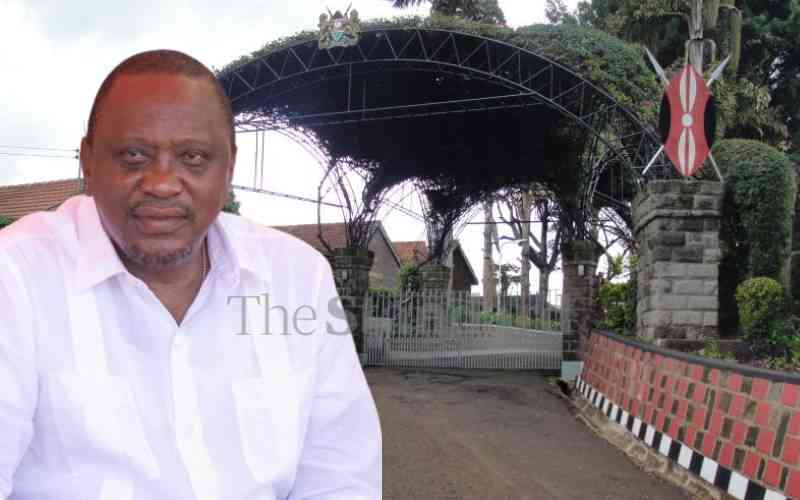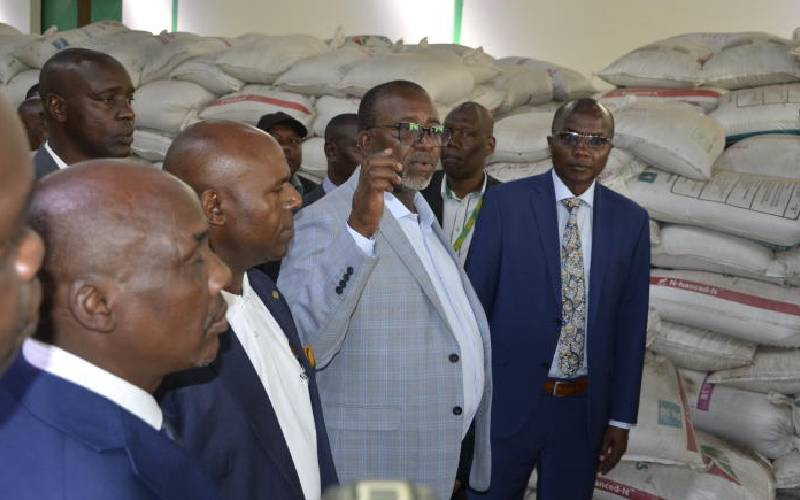TURIN, ITALY: The new battlefront for sustainable agriculture in Africa is pitting millions of youth against governments which has been accused of colluding with cartels and barons to grab land and make agriculture a cartel.
This was the general view during a workshop on 10,000 Gardens in Africa at Salone del Gusto and Terra Madre Conference in, Turin, Italy, on Thursday evening.
The workshop which was largely attended by African delegates to the conference heard of injustices that are perpetuated by governments to the detriment of locals who cannot achieve food sustainability mainly due to poor land policies and unfair business models.
Speaking at the workshop, Edward Mukiibi, the vice-president of Slow Food Foundation in charge of Africa was categorical that African leadership was constantly supporting land grabbers and turning land in agribusiness run by powerful multinationals whose sole aim is to make profits.
“I urge African youth to take charge of establishing new ideas that will ensure sustainable agriculture and one of the models is through family farming which will ensure environmental and cultural values are balanced,” said Mukiibi from Uganda.
Mukiibi further said that diversification of crops was deliberately being sabotaged by multinationals whose sole aim is to control the seed market and to this end the governments were accused of not doing enough to protect the small farmers.
He told the workshop that Africans have been pushed to believe that they can only grow just two or three crops for the whole year and that is when the rains fall. This means that during the dry seasons crops that do well during dry seasons are forgotten as the farms lie fallow and crop prices skyrocket.
Mukiibi stated, “When there is rain everybody plants the same crop, and when the time for harvest comes prices drop and powerful multinationals buy the produce. It is however ironic that during the planting season, the price of seeds will go up and never come down. Thus a vicious cycle has been created by cartels to perpetually keep the people hungry as other make profit.”
Mukiibi and other African delegates insisted that Africa does not lack food because they want it but farmers choices were being limited by big business that control the agricultural sector. The western world also came under heavy attack on allegations of brainwashing Africans to give up what is suitable for African and pick up farming models and crops suitable for the West.
Mukiibi urged African farmers to take up small gardens that have variety to ensure sustainability, environmental and cultural protection.
John Kariuki, head of Kenyan delegation to the conference, said that Kenya is making small worthwhile steps towards setting up family farming for the benefit of the rural farmers.
Kariuki said, “We believe it can work because we have seen it work in Kenya where a number of farmers have taken to indigenous farming and the results are pleasing; our aim now is to get more and more young people to engage in sustainable family farming.”
Some of the notable farming models that are being showcased at the event by Kenyans include the making of salt from reeds in Webuye, the making of cheese in Pokot, the growing of mixed indigenous crops in Kitale and the presentation of Kenyan culinary books, Delicious Kenya, by renowned writer and publisher Phylis Leshao.
Kenya sent a delegation of more than 40 people, most of them the youth, to the week-long conference that has attracted over 3,000 people from around the world.
Other speakers at the workshop included Somalia’s Mohamed Mudane who decried lack of security in Somalia as a major stumbling block towards achieving food security. Speakers from South Africa and Zimbabwe accused the governments of unfair land policies that are modeled on neocolonialism and do not favour rural farmers at all.
Stay informed. Subscribe to our newsletter
 The Standard Group Plc is a
multi-media organization with investments in media platforms spanning newspaper
print operations, television, radio broadcasting, digital and online services. The
Standard Group is recognized as a leading multi-media house in Kenya with a key
influence in matters of national and international interest.
The Standard Group Plc is a
multi-media organization with investments in media platforms spanning newspaper
print operations, television, radio broadcasting, digital and online services. The
Standard Group is recognized as a leading multi-media house in Kenya with a key
influence in matters of national and international interest.
 The Standard Group Plc is a
multi-media organization with investments in media platforms spanning newspaper
print operations, television, radio broadcasting, digital and online services. The
Standard Group is recognized as a leading multi-media house in Kenya with a key
influence in matters of national and international interest.
The Standard Group Plc is a
multi-media organization with investments in media platforms spanning newspaper
print operations, television, radio broadcasting, digital and online services. The
Standard Group is recognized as a leading multi-media house in Kenya with a key
influence in matters of national and international interest.








